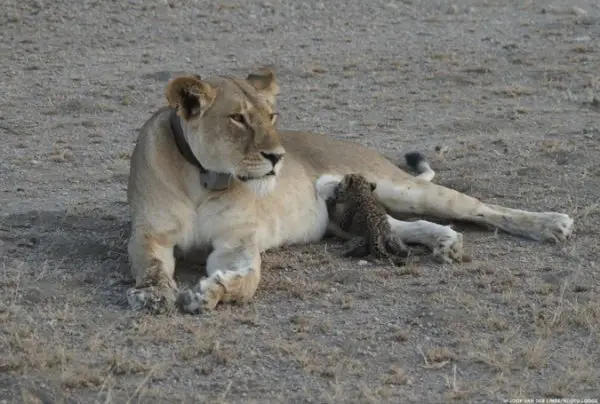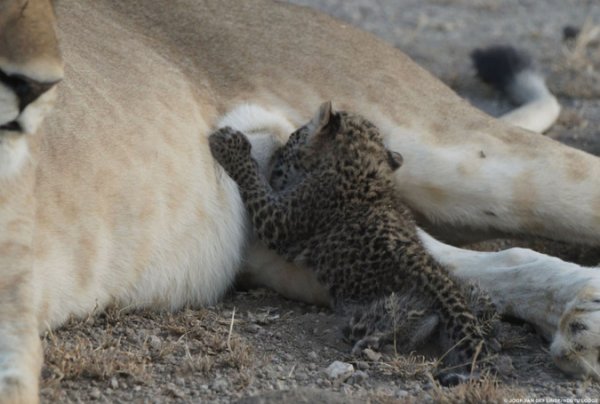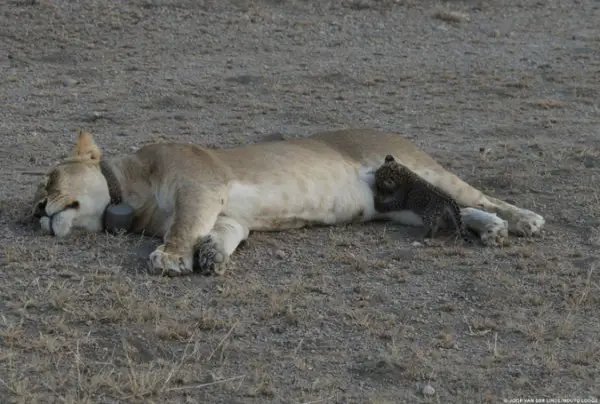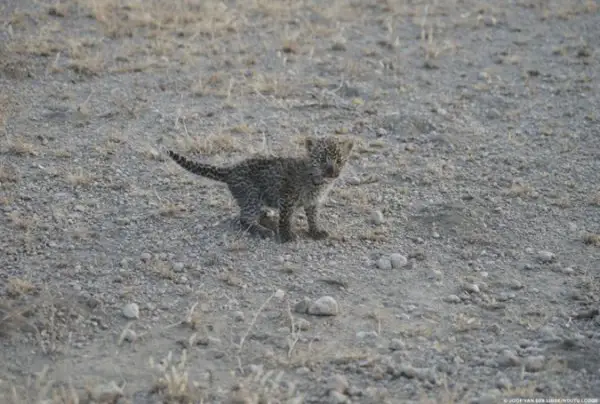Why Was This Tiny Leopard Cub Feeding From A Five Year Old Lioness?
Tags: News

Whilst it is common in the wild for lionesses to allow their sibling’s cubs to suckle from them, a lioness feeding a cub from an entire different species has never been seen before – until now.
Earlier this week, a five year old lioness was seen nursing a tiny leopard cub in the Ngorongoro Conservation Area in Tanzania. This sighting of cross-species interaction was documented for the first time ever by a guest at the Ndutu Safari Lodge.

The reason behind the lioness feeding the leopard cub, who could have been no older than just a few weeks, is currently unclear. As can be seen in the photos, the lioness is collared due to being radio-tracked by researchers of the conservation group KopeLion, who have named the lioness Nosikitok. The researchers have speculated that the lioness’s own young cubs may have died recently, and by pure coincidence, the leopard cub found her whilst being the same age as her own cubs. This would be the reason behind why she was able to feed the leopard cub.

Dr Luke Hunter, the President and Chief Conservation Officer of Panthera, which works to protect big cats around the world, said in a statement, “This is a truly unique case. I know of no other example of inter-species adoption or nursing like this among big cats in the wild. This lioness is known to have recently given birth to her own cubs, which is a critical factor. She is physiologically primed to take care of baby cats, and the little leopard fits the bill – it is almost exactly the age of her own cubs and physically very similar to them.”

This occurrence can be seen as particularly interesting due to the fact that lions and leopards do not normally mix in the wild, and lions are largely a threat to leopards as they frequently attack and even kill the solitary leopard hunters when the opportunity arises, in order to eliminate the competition for food.
Due to this fact, it can be predicted that the leopard cub and lioness will most likely not be playing happy families for long, and the researchers have suggested that if the cub survives, other lionesses in the pride will not take to it well, and may even kill the cub.
IMAGES CREDIT: Joop Van Der Linde / Ndutu Safari Lodge / KopeLion
I am Jess Murray, wildlife conservationist, photographer, and writer. I like to document the natural world and create awareness through my writing so that your future can be sustainable and positive. Follow my Facebook page and Instagram account to be part of the journey.
Leave Comment: